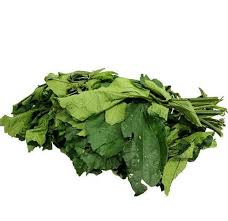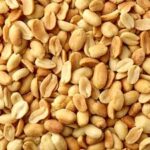Ugwu Leaves: NigeriaŌĆÖs Green Treasure for Wellness and Nutrition

Common Name: Fluted Pumpkin Leaves
Local Name (Igbo): Ugwu
Botanical Name: Telfairia occidentalis
Family: Cucurbitaceae
¤ī┐ Introduction
In the rich culinary and agricultural traditions of Nigeria, few vegetables hold as much respect and utility as Ugwu. Known for its dark green, tender leaves and its rich nutritional profile, Ugwu (Fluted Pumpkin) is a staple vegetable across the countryŌĆöespecially among the Igbo people, where it originates. It is not just a cooking ingredient but a symbol of vitality, fertility, and healing. From the kitchen pot to herbal remedies, Ugwu is deeply woven into the fabric of Nigerian life.
ŌĆ£Beat the Pressure: A Comprehensive Guide to Lowering Blood Pressure Naturally.ŌĆØ
Buy book from Gumroad or Paystack
¤ÅĪ Origin and Cultivation
Ugwu is indigenous to West Africa, especially Nigeria, and thrives in tropical and subtropical climates. It is a climbing vine that requires staking or trellising. While it’s primarily grown for its leafy greens, its seeds and fruits are also valued.
Ugwu is one of the most cultivated vegetables in Nigeria due to its adaptability, fast growth (harvestable in 4ŌĆō6 weeks), and year-round demand in both urban and rural markets.
¤¦¬ Nutritional Value (per 100g of fresh leaves)
- Calories: ~37 kcal
- Protein: ~4.6 g
- Fat: ~0.4 g
- Carbohydrates: ~5.0 g
- Fiber: ~2.0 g
- Iron: ~5.0 mg
- Calcium: ~260 mg
- Phosphorus: ~45 mg
- Vitamin C: ~50 mg
- Vitamin A (beta-carotene): High
Ugwu is considered a superfood in many Nigerian households due to its high nutritional value.
¤ÆÜ Health Benefits of Ugwu Leaves
1. Boosts Blood Production
Ugwu is often referred to as a ŌĆ£blood boosterŌĆØ due to its high iron content. It is widely recommended for individuals suffering from anemia and is often included in diets for pregnant and postpartum women.
2. Improves Vision
The vegetable is rich in beta-carotene (vitamin A), which is essential for eye health and may help prevent night blindness and other eye disorders.
3. Supports Immune Function
With its abundance of vitamin C and antioxidants, Ugwu helps strengthen the immune system, promoting quicker healing and protecting the body from infections.
4. Promotes Bone and Teeth Health
The high levels of calcium and phosphorus make Ugwu valuable for maintaining strong bones and teeth, particularly important for children and the elderly.
5. Aids Digestion and Prevents Constipation
Thanks to its fiber content, Ugwu supports regular digestion and bowel movement, reducing the risk of constipation and digestive discomfort.
6. Enhances Fertility and Reproductive Health
In traditional medicine, Ugwu is considered a fertility-enhancing vegetable for both men and women. The seeds, in particular, are said to improve sperm quality and quantity.
7. Good for Diabetics
Ugwu has a low glycemic index and contains compounds that may help regulate blood sugar levels, making it a smart choice for people managing diabetes.
¤ŹĮ’ĖÅ Culinary Uses
Ugwu leaves are highly versatile in Nigerian cooking. They are used in a wide range of soups, stews, and porridge dishes. Popular recipes include:
- Egusi Soup: Ground melon seed soup richly flavored and garnished with chopped ugwu leaves.
- Ogbono Soup: Slimy and savory soup thickened with ogbono seeds and finished with ugwu.
- Okra Soup: Ugwu leaves are added toward the end of cooking to retain freshness.
- Yam Porridge (Asaro): Chopped ugwu adds color, flavor, and nutrients.
- Vegetable Stews: Often saut├®ed with onions, pepper, tomatoes, and protein for a quick and nutritious dish.
Ugwu can also be lightly steamed and served with rice, beans, or boiled yam.
¤æ®ŌĆŹ¤īŠ How to Grow Ugwu at Home
Ugwu is very popular for home gardening. HereŌĆÖs a simple guide:
- Planting: Sow seeds directly into fertile, moist soil.
- Soil Type: Well-drained, loamy soil enriched with organic compost.
- Watering: Regular watering is needed, but avoid waterlogging.
- Support: Being a climbing vine, it needs sticks or trellises to grow properly.
- Harvesting: You can start harvesting the young leaves within 4ŌĆō6 weeks.
You can harvest multiple times during the season, making it a cost-effective and productive crop.
ŌÜĀ’ĖÅ Precautions
- Wash Ugwu leaves thoroughly before cooking to remove sand, pesticides, or insects.
- DonŌĆÖt overcook the leaves, as this can destroy essential nutrients. A quick blanch or gentle stir-fry is ideal.
- In large quantities, the seeds (though nutritious) should be taken with moderation, especially if you’re unfamiliar with their effects.
¤īŹ Cultural and Medicinal Relevance
Among the Igbo people, Ugwu is not just a foodŌĆöitŌĆÖs a part of cultural identity. It is a traditional postnatal meal ingredient, believed to help new mothers regain strength and vitality. In herbal medicine, Ugwu leaves, seeds, and even the stems are used to treat ailments ranging from fatigue to reproductive issues.
Ugwu is also a symbol of prosperity and wellness. It is common in ceremonial dishes served at weddings, naming ceremonies, and festivals.
Ō£ģ Conclusion
Ugwu (Fluted Pumpkin Leaves) is much more than a kitchen stapleŌĆöit’s a symbol of health, culture, and nourishment in Nigerian society. Packed with essential nutrients, easy to grow, and incredibly versatile in cooking, Ugwu deserves its title as ŌĆ£NigeriaŌĆÖs green gold.ŌĆØ Whether you’re looking to improve your diet, support your health, or enjoy authentic Nigerian flavors, Ugwu should be a regular guest on your plate.
┬Ā
¤Æö ŌĆ£She said she loved me. And for fifty-two years, I believed her.ŌĆØ ¤Æö
Buy The Book "The Longest Lie: A HusbandŌĆÖs Journey Through Love, Betrayal, and Redemption" From Gumroad
┬Ā






